How housing and reproductive health is connected (and how you can help!)
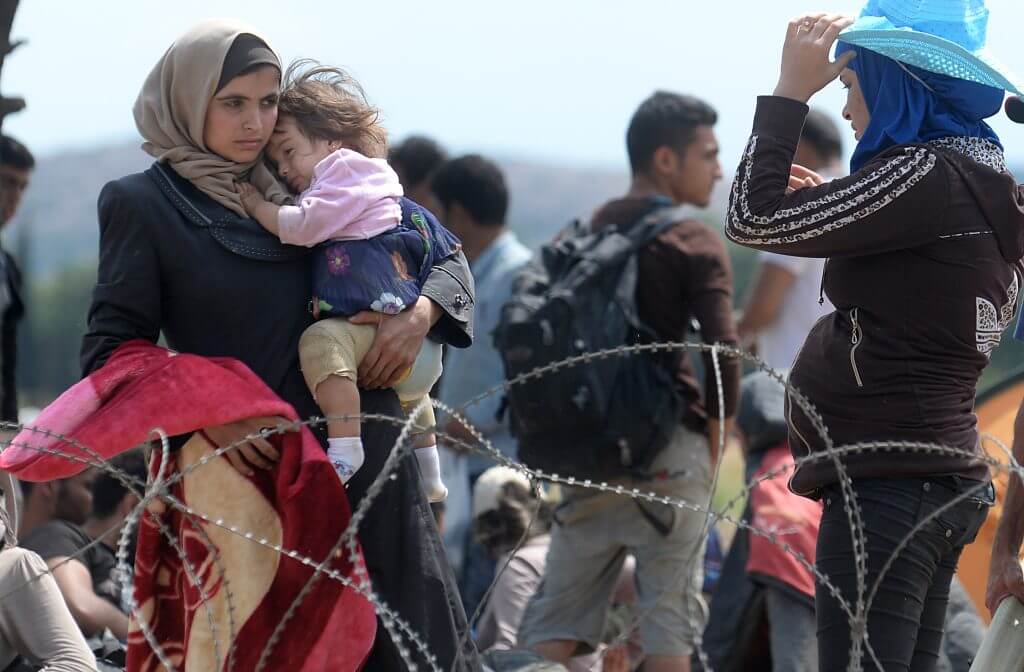
“People have the right to have a child. People have a right not to have a child. And people have a right to parent their children in safe and healthy environments.”
Imani Gandy on Rewire.News, Why Losing Your Housing Is One of the Greatest Threats to Reproductive Health.
UNFPA works worldwide to secure the rights of women so that they can choose if, when, and with whom to have children.
It is no coincidence that so much of UNFPA’s work is with women and children in humanitarian crisis zones, where many go without essential services and supplies, including stable housing.
Housing stability is directly connected to a woman’s ability to protect and provide for herself and her children. UNFPA has seen this reality in countries where migrants and displaced women are at higher risk of adverse health outcomes, including gender-based violence (GBV), child marriage, lapses in prenatal and contraception care, and maternal death.
Crisis situations leave women vulnerable
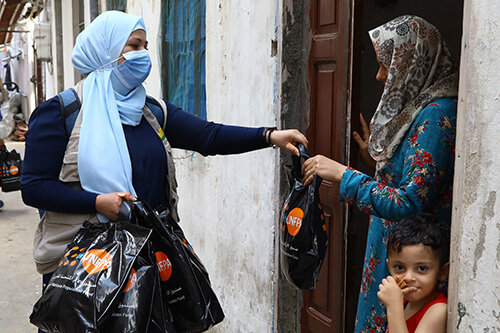
Beirut is the most recent example of what happens when a crisis displaces families, women and children.
On August 24, 2020, an explosion of 2750 tons of ammonium nitrate detonated in the Port of Beirut. With countless homes and more than 80 health clinics destroyed, more than 300,000 people were left homeless and without access to critical emergency care.
Among the homeless, an estimated 140,700 are women and girls including 81,000 women of reproductive age and 48,000 children. 3,938 women are currently pregnant and in need of prenatal and postnatal care.
UNFPA is scaling up efforts to meet urgent needs for sexual reproductive health, given the destruction of maternity wards and primary health centers in Beirut. They are also prioritizing gender-based violence (GBV) services, as GBV and sexual exploitation are expected to increase as stress and coronavirus cases increase and food and money decrease.
Even more, Beirut is facing a multi-faceted crisis. In addition to ongoing economic distress and the Beirut blast, the COVID-19 pandemic still requires urgent attention. Coronavirus is especially risky due to crowded spaces like hospitals and lack of hygiene supplies.
During the first week of the Beirut crisis, UNFPA delivered 85,000 sanitary packs, 40,000 dignity kits with personal hygiene supplies, and 10,880 pieces of personal protective equipment to the local health system, in addition to deploying midwives and trainers to primary healthcare facilities impacted by the incident. You can help UNFPA reach more people by donating directly to the Beirut fund here.
Giving birth without a home
Ginalyn was nine months pregnant when Typhoon Oompong forced her and her family to leave their home in the Philippines. She made it an evacuation center, where UNFPA gave her an emergency birth kit so she could deliver her baby safely.
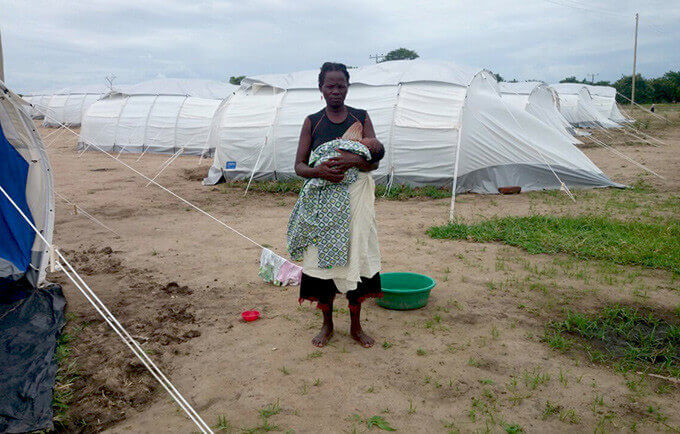
More than 50,000 pregnant women like Ginalyn were affected by the typhoon, with 35,000 women only six months away from giving birth.
When natural disasters leave pregnant women homeless, they are without a safe environment to give birth in. Even more, they may not have access to a nearby health facility or midwife, which is crucial to prevent pregnancy-related complications like obstetric fistula.
It’s expected that climate change will exacerbate these issues for women and girls. With more communities displaced, women and girls are projected to face higher rates of child marriage, GBV, and pregnancy complications.
Emergency birth kits can make the difference between life or death for homeless and displaced women. UNFPA’s kits contain soap, a plastic sheet, a razor blade, an umbilical cord tie, cloth and latex gloves. These items provide mothers with the tools to care for themselves and their babies after delivery. You can donate directly to our emergency birth kit fund here.
Providing care to homeless and displaced women
When women and girls are without stable housing, they are often living in cramped, unhygienic settlements where infection is more likely and health professionals are fewer. For women who are migrating, their health professionals — if they have them — may not even speak their language or may be hostile to immigrants.
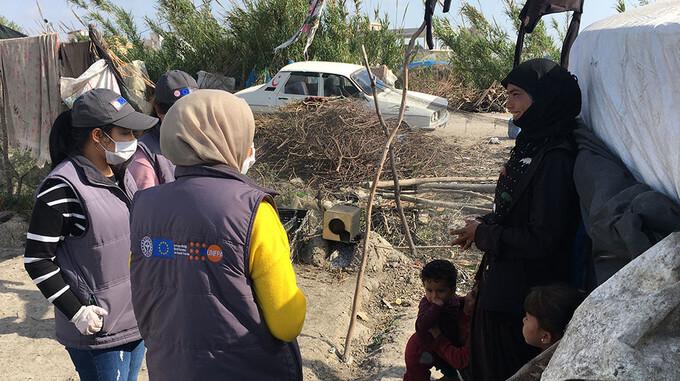
Meryem, a Syrian refugee living in a tent settlement in southern Turkey, unexpectedly lost her husband. She found a job as an agricultural worker, leaving her two children with her neighbor every day.
She and her family share a small tent. “We live and work under difficult conditions,” she told UNFPA. “Hygiene opportunities are limited.”
Neither of her sons had received their childhood vaccinations, so they were often sick. On top of all these challenges, her family had little information about the COVID-19 pandemic that was spreading within Turkey’s borders.
UNFPA supports mobile health clinics that reach out to families just like Meryem. Thanks to UNFPA tent-to-tent services, her children were able to get vaccinated and her family received supplies to protect themselves from the coronavirus.
In Morocco, women who have left abusive relationships often end up homeless, in large part due to the stigma against single women and lack of education and career opportunities. This can be seen all over the world, especially where gender inequality is higher and men are expected to provide for their families while women are expected to perform domestic duties.
In addition to healthcare, UNFPA supports legal reforms that guarantee the rights of girls to attend school. They also provide women with legal services for divorce and alimony, so that women can have more opportunities after leaving their husbands
UNFPA offers women-only safe spaces, too, as seen in the Rohingya refugee camps in Cox’s Bazar, so that women and girls can support each other and gain access to family planning services. Spaces like these are essential for displaced women to gain a sense of community, and offer them the opportunity to learn about GBV, gender inequality, and other harmful issues that women face.
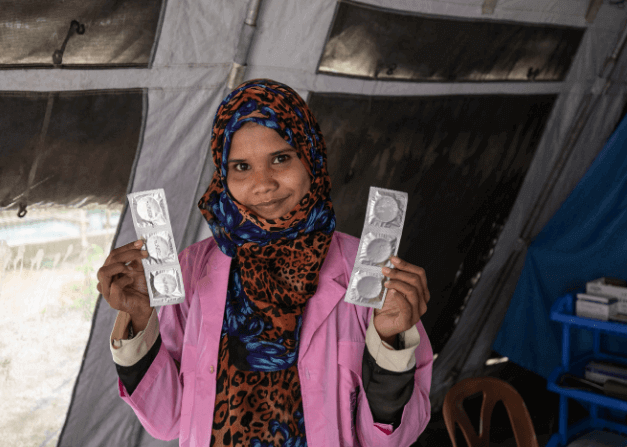
Photo: UNFPA Bangladesh
Homelessness is a huge barrier to reproductive health and justice. If women do not have stable housing, childbirth becomes much riskier and raising children becomes especially difficult. And with the COVID-19 pandemic raging around the world, the right to personal space and secure housing is even more urgent.
There are ways you can help! UNFPA provides emergency birth kits and dignity kits to women worldwide. In addition to essential supplies, UNFPA supports programs to empower women so that they can seek out education and career opportunities so they can create stability in their lives.